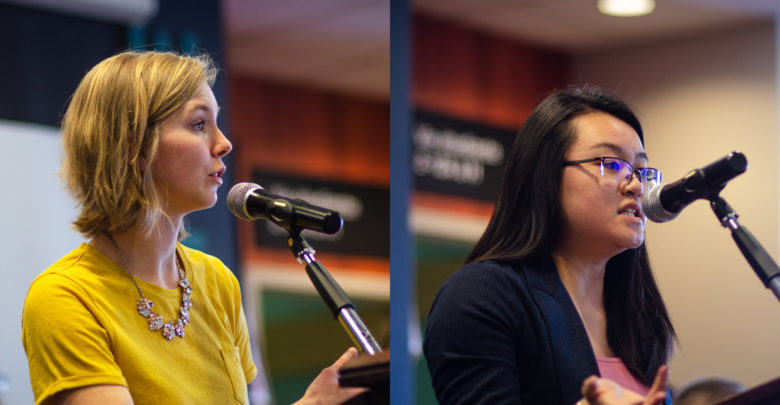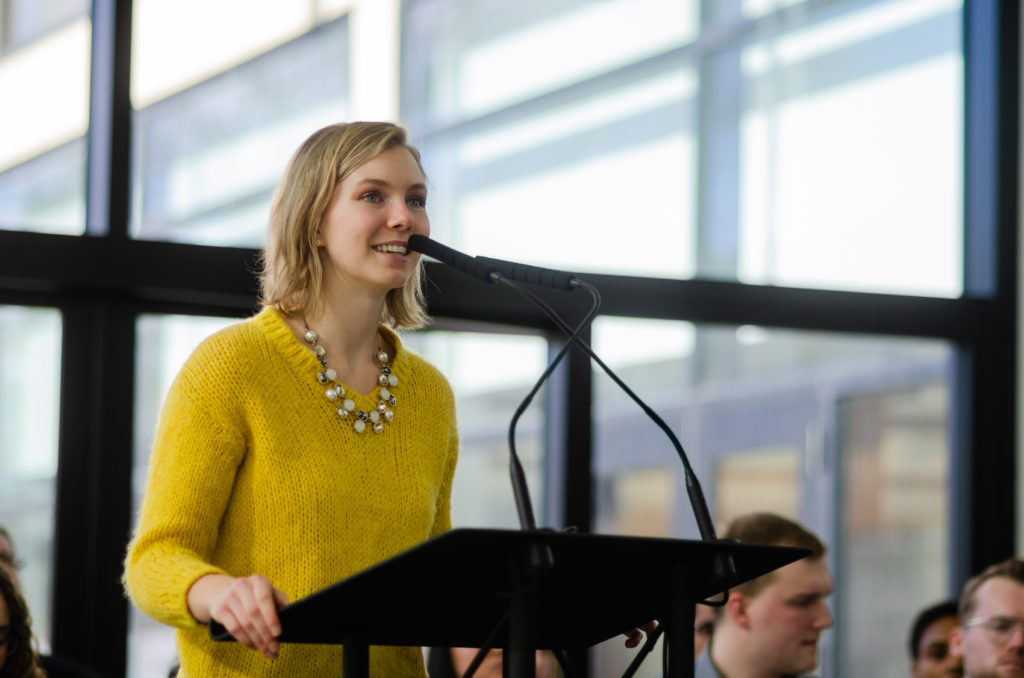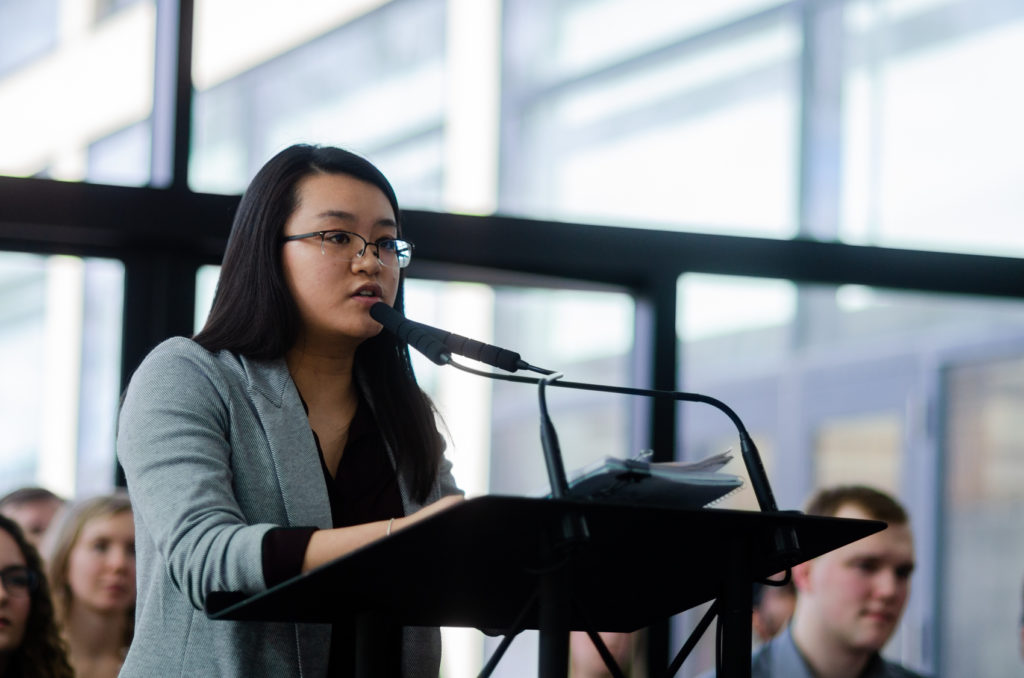Bite the Ballot: Vice-President (Operations and Finance)
How should the student body vote, and how will they?
 Helen Zhang
Helen ZhangThis year, both the candidates competing for vice-president (operations and finance) have presented different visions for the portfolio, while also relying upon the passing of the Sustainability and Capital Fund to fund many of their promises.

Alana Krahn
Alana Krahn, a fourth-year business student who currently serves as a General Faculties Council representative, has spent most of the campaign promising to address issues of mental health on campus, while additionally asserting that she would achieve economic sustainability for SU businesses.
Krahn specifically has two key policies meant to address the problem of mental health on campus. The first of these is to create a wellness space in SUB, and the second is to expand the SU health and dental plan to better encompass mental health needs. While many details are vague, both are good proposals which demonstrate that Krahn understands the long-term concerns around mental health on campus. Krahn’s choice to heavily focus on these initiatives throughout the campaign additionally demonstrated strong political instincts, and it became a clear distinction between her and her opponent.
The other platform policy that Krahn heavily focused on was her proposal to get better value from Horowitz Catering and Events through expanding the service beyond their current student clientele, and getting the business to provide cheaper services for students. This is definitely the best fiscal policy proposed by either candidate; however, Krahn herself acknowledges that this is a complex solution and, given her relative inexperience in student government, I question whether she will be able to complete this task.
Over the course of the campaign, Krahn has shown herself to be a capable candidate who isn’t scared to make ambitious promises. My main concern, however, is that Krahn lacks a proper comprehension of what the vice-president (operations and finance) role is, as much of her platform focused on areas traditionally outside of the portfolio. Further, her initial reliance on the Sustainability and Capital Fund heightens my concerns as to whether she can properly fulfill the obligations demanded by the role.

Samantha Tse
Samantha Tse, a third-year secondary education student and education councillor on Students’ Council, presented a significantly different vision of the role from that of her opponent. Instead, she chose to centre her campaign around issues of affordability on campus, pleading for students to get the best value out of their student fees.
Tse specifically promised to address these issues by revamping the SU website and creating a better job search directory, asserting that this would increase awareness of these services and allow students to better use them. While this is a solid promise, it doesn’t address the depth of affordability issues that students currently face, as awareness is only one aspect of these issues. Tse would’ve benefited from focusing more on other policy ideas, such as her idea of adding more food options from around the world to SUBmart. This adds outright value to these services, rather than just directing students towards them.
Another policy that Tse focused heavily on was her plan to add a dollar section to SUBmart, arguing that students could then quickly grab items before class, while growing SUBmart’s profits. However, this a fairly weak fiscal policy; many students, myself included, rarely stop by SUBmart because our classes take place far away from SUB. At best, I predict that this could induce a modest increase in profits, but nothing really substantive.
Given her experience serving on the Audit Committee of Students’ Council, I expected more from Tse heading into the race. Instead, Tse unfortunately failed to provide many bold campaign policies, and underperformed at election forums. Generally, this leaves me wondering what Tse could’ve accomplished with a better run campaign.
Who will win, and who should win?
Overall, I believe that Alana Krahn should, and likely will win this race. Her strong performance at forums and social media presence gives her a distinct advantage at the polls.
Although I worry about her ability to achieve all her promises, especially if the Sustainability and Capital Fund doesn’t pass, Krahn’s platform provides policies that address the depth and variety of issues on campus, making her the most qualified candidate for the position.




